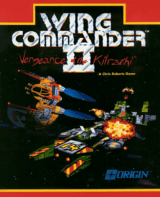A Hero’s Fall and Redemption
The tale begins on a somber note as the Kilrathi stealth fighters decimate your carrier, the Tiger’s Claw. Tragically, you’re falsely held responsible for this devastating loss. Your once-glorious career takes a nosedive as you face demotion and exile to a remote space station, far from the front lines. It appears that your glory days are behind you.
A decade passes, and destiny comes knocking. An opportunity arises to save the Confederation’s flagship, the Concordia, from a Kilrathi onslaught. Onboard the Concordia, you reunite with old friends, rekindling memories and reestablishing bonds.
As you return to the cockpit, the burden of halting the Kilrathi onslaught rests squarely on your shoulders. The key to your salvation and redemption lies in proving your innocence in the Tiger’s Claw’s destruction.
A Familiar Gameplay with a Twist
Wing Commander II retains the core gameplay mechanics of its predecessor. However, the inclusion of new ships for both the Kilrathi and the Confederation adds a fresh dimension to the experience. The Rapier makes a glorious return, albeit in an enhanced form.
While some weapons, both missiles and energy guns, make a reappearance, the introduction of advanced technology changes the combat landscape. Capital ships now deploy “phase shielding,” rendering them impervious to conventional weaponry.
Special torpedoes are the sole means to breach this formidable defense, and heavy fighters and bombers are tasked with torpedo runs. These runs require precise analysis of the target’s shields, a process fraught with suspense as the bomber remains stationary during the lock-on.
To protect bombers from enemy fighters during this critical phase, they are equipped with gun turrets. Chaff pods introduce an intriguing tactical element, capable of diverting enemy missiles away from the target.
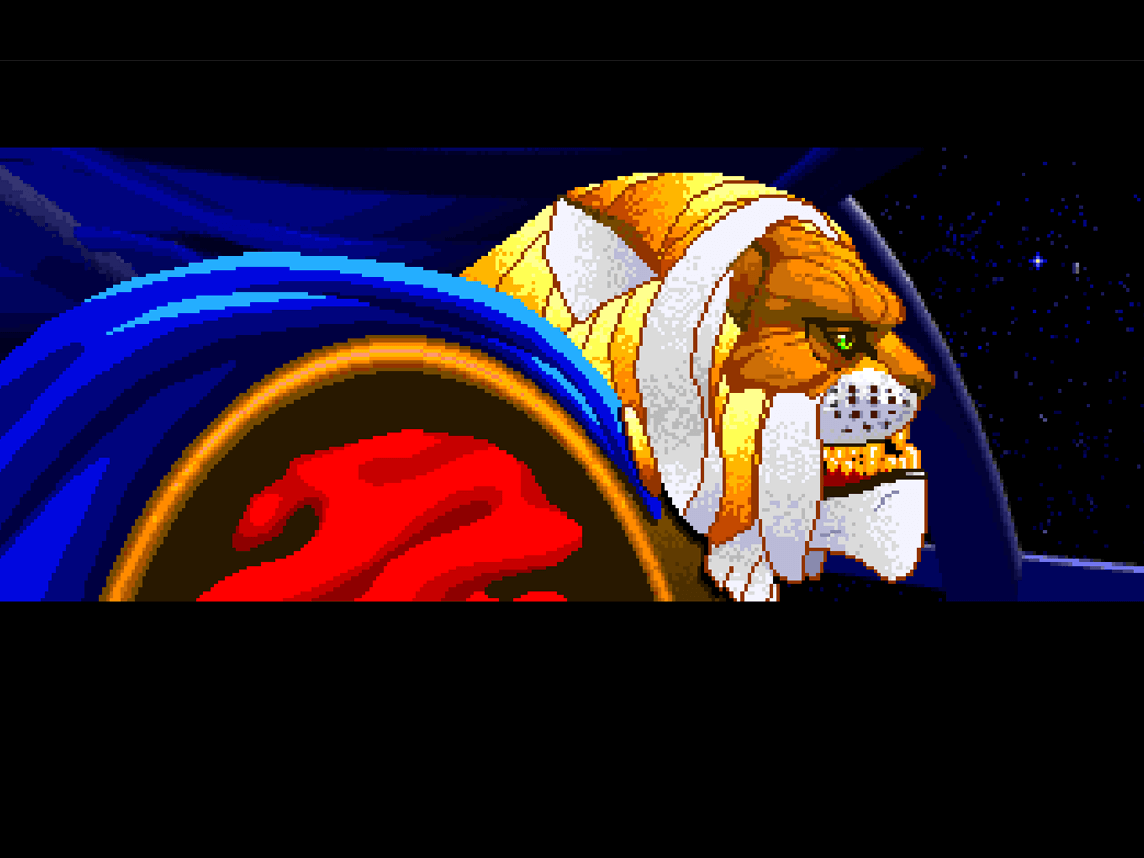
Cinematic Storytelling at Its Best
The Wing Commander series has always been renowned for its cinematic storytelling, and Wing Commander II takes this tradition to new heights. The game is replete with animated cutscenes that weave the narrative seamlessly between missions.
The immersive storytelling adds depth and emotional connection to the thrilling space battles.
Red alert! Red alert! Kilrathi assault on the TCS Concordia! No room for error – your carrier’s survival depends on your valor.
Reliving the Glory
Wing Commander was more than just a game, it was a cinematic masterpiece in 1990. Wing Commander II continued this legacy, setting a new standard in 1991. It pushed the boundaries of what was possible at the time, leaving a lasting impression on those who had the privilege of playing it.
The developer, Origin, displayed a disregard for system specifications, making this game accessible to only the most capable machines of its time.
Depth in Character and Story
Wing Commander II distinguishes itself with its rich character development and compelling plot. The game introduces funerals for fallen pilots, providing a poignant reminder of the costs of war. Interactions with fellow pilots and crew aboard the TCS Concordia reveal multifaceted personalities.
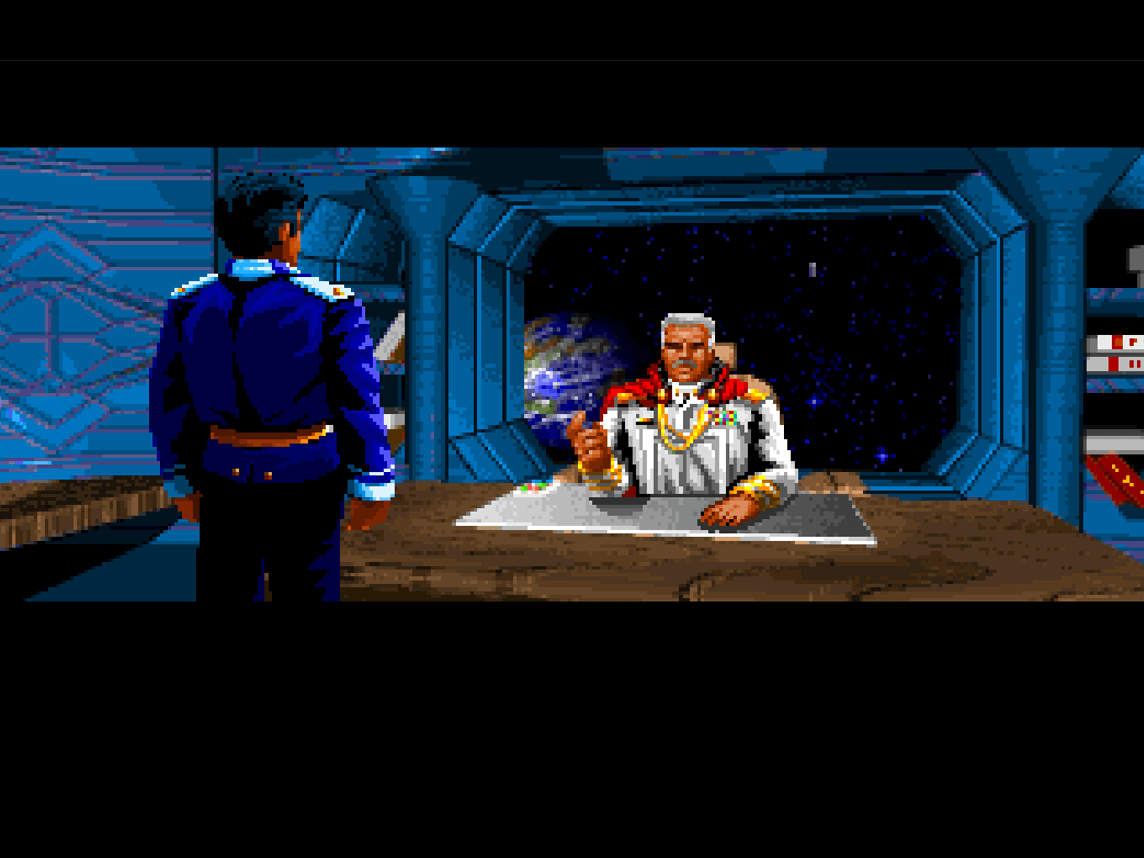
Take, for example, Spirit, your wingmate in the series. She embodies reliability and camaraderie during every mission. Her tragic fate, should she not survive the first game, has a profound impact on the story and the relationship between Blair and Angel, his commanding officer.
Return to the cockpit, take to the stars, and rewrite history in the void. Stand as a hero of the Terran Confederation.
The original Wing Commander had limited plot development, but Wing Commander II embraced cinematic storytelling with an unparalleled fervor. The game ventured into an uncharted territory of plot-driven action games, setting the stage for its sequels.
These sequels substituted hand-drawn characters and cutscenes with full-motion video, featuring renowned actors like Mark “Luke Skywalker” Hamill and Tom “Not Luke Skywalker” Wilson. Despite its somewhat campy script, Wing Commander 3 remains a highly enjoyable installment.
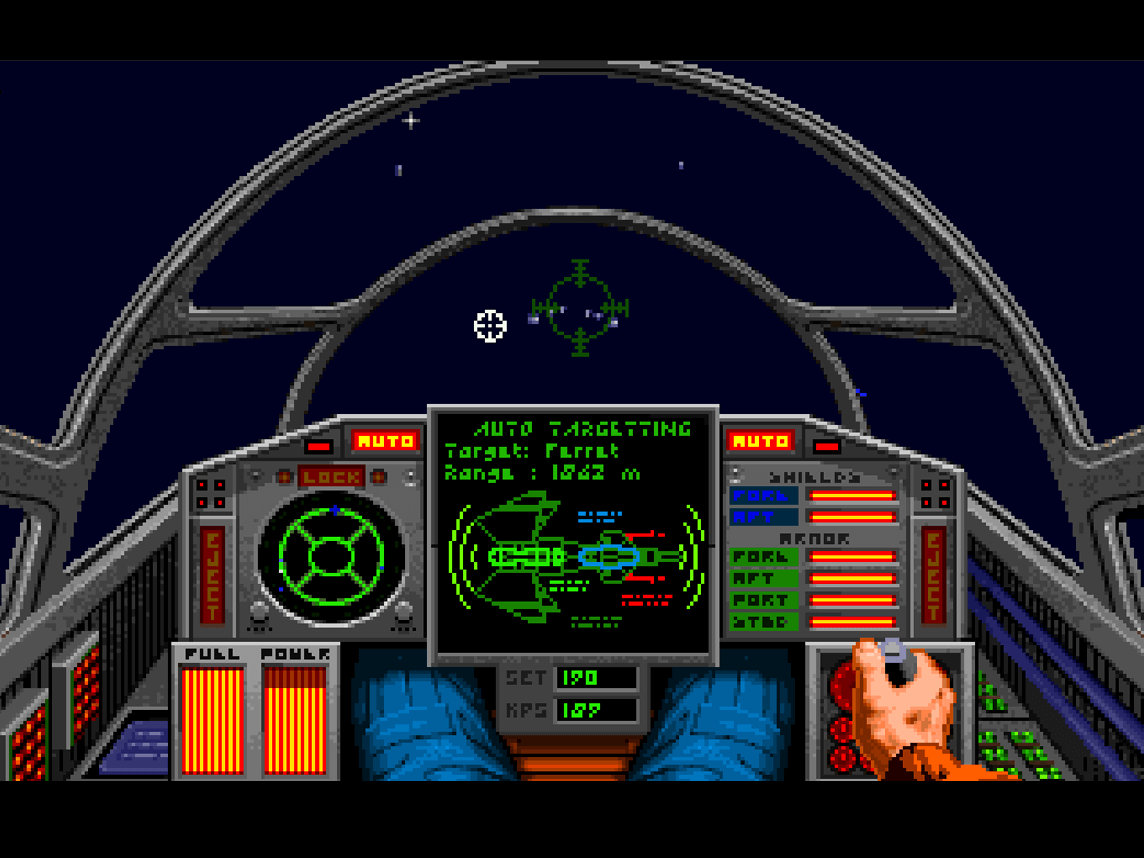
The Weight of Heroism
What sets Wing Commander II apart is the unusual sense of realism it imparts. The sequel begins with a startling premise – you’re not welcomed as a war hero, but rather as the “Coward of K’Tithrak Mang.” Blair’s decade of exile stems from the mysterious destruction of the Tiger’s Claw by stealth fighters that others refuse to acknowledge.
This recurring theme amplifies the sense of isolation and suspicion, making each solo mission a critical test.
The game employs a branching mission system, where your performance has a direct impact on the war effort. Opting for the “bad” path leads to a daring but suicidal last stand. Such intricate branching narratives are rarely seen in contemporary games, largely due to the considerable cost of producing content that players might skip by loading a saved game.
However, text-based storytelling, as exemplified in Wing Commander, proves effective.
Gameplay Legacy
It’s time to delve into the gameplay itself, and it’s crucial to acknowledge that the battle between Wing Commander and X-Wing/TIE Fighter fans was nothing short of epic.
Cinematically, Wing Commander reigned supreme, but when it came to space combat, there was no competition. The space shooters of the Star Wars universe couldn’t match the immersive experience offered by Wing Commander.
From a modern perspective, the action in Wing Commander II may have aged, primarily due to its reliance on scaled sprites rather than polygonal 3D. Additionally, the AI behaves more like participants in a jousting tournament rather than formidable foes in a dogfight.
This aging process renders the game borderline unplayable by contemporary standards. It’s unfathomable that this game was once the epitome of the space combat genre.
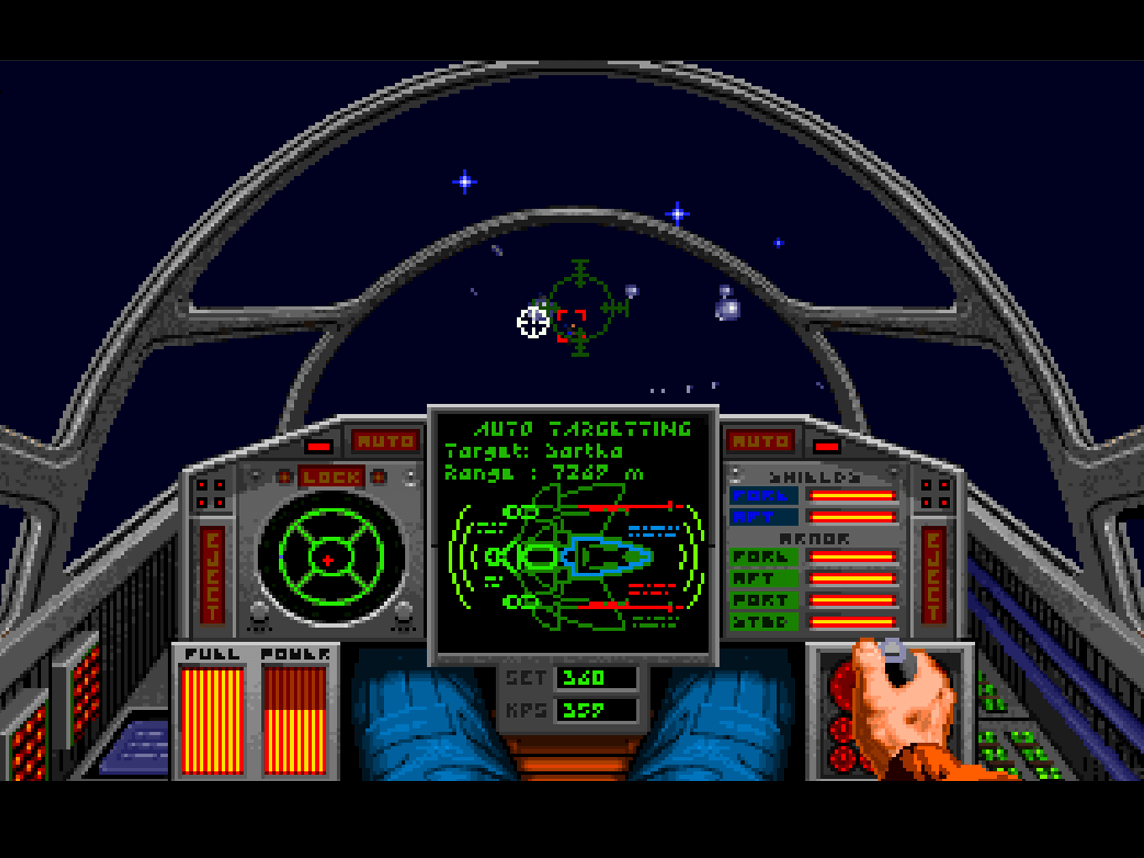
Humanity in the Void
However, the game’s human element remains a shining testament to the power of character-driven narratives. Landing after a mission triggers meaningful interactions. For instance, Sparks, the engineer, engages in casual conversations while tallying your kills, replacing mundane statistics with lively banter.
True, you can’t make dialogue choices (at least, not until Wing Commander 3), but the time you spend interacting with the crew enriches the narrative, transforming it from a series of missions into a living, breathing saga.
Even Freespace 2, often hailed as the greatest space sim of all time, couldn’t match this level of character depth. Wing Commander II brilliantly captures the essence of shared frustration and camaraderie as you, much like Blair, grapple with the disbelief surrounding stealth fighters.
The narrative weaves a tapestry of murder, sabotage, romance, and the introduction of unforgettable characters such as the turncoat Kilrathi Hobbes. The core game and its expansions together form an exceptionally satisfying space epic.
Conclusion
In conclusion, Wing Commander II: Vengeance of the Kilrathi is a masterpiece that endures as a testament to the power of storytelling in gaming. It’s a space combat classic that introduced a level of character depth and narrative richness that few games of its era could match.
While the gameplay may have aged, the storytelling and the immersive world it created remain unparalleled.
Relive the glory of this cinematic space saga and experience the epic narrative that has left an indelible mark on gaming history.
Play Wing Commander II online
Now you can play Wing Commander II online, in a web browser, for free!

